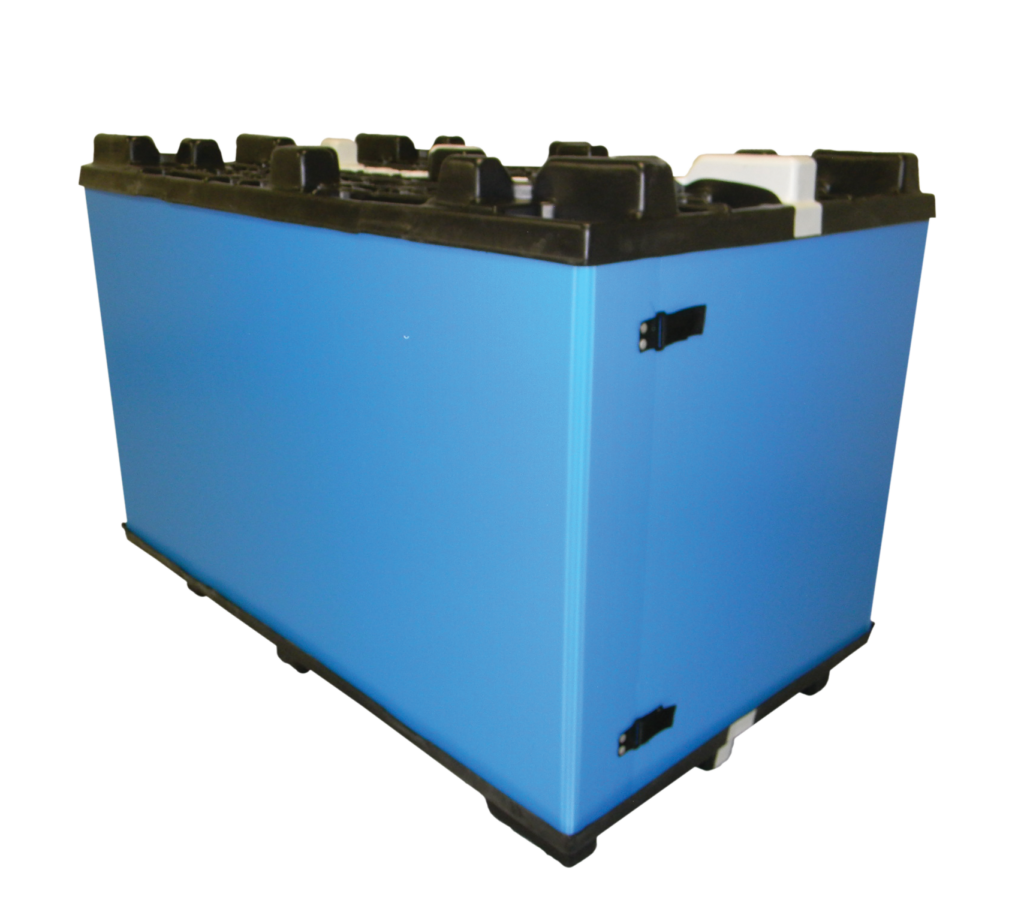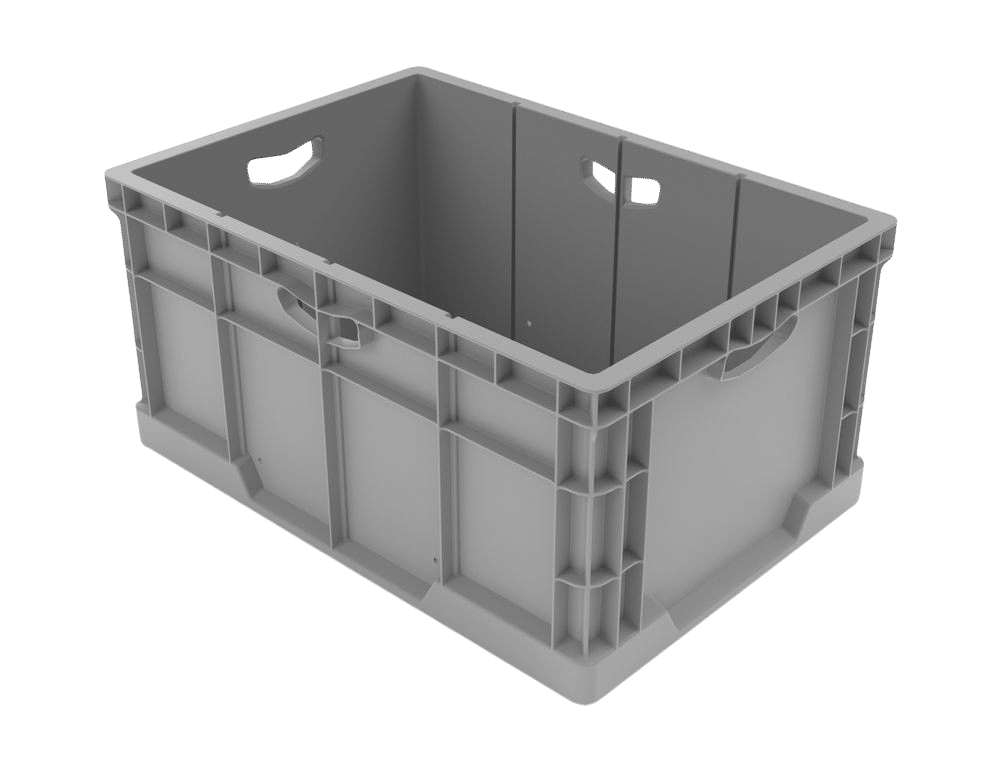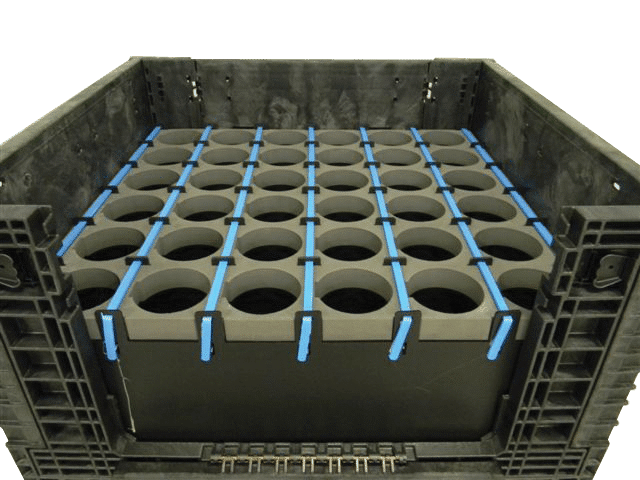You’ve spent time, resources, and expertise creating high-quality industrial parts and components. But what happens between the production line and the final destination, or even just within your own facility? Too often, valuable goods arrive scratched, bent, or broken.
The cost of damaged products goes far beyond the immediate replacement. It means expensive rework, scrapped inventory, tedious freight damage claims, delayed shipments, and, perhaps most importantly, dissatisfied customers. Each piece of damaged goods eats into your profitability and can tarnish your reputation.
Preventing this damage is critical, and it starts with effective packaging. While the outer container is important, the real hero inside that packaging is often the dunnage. This protective material is not just about filling space; it’s fundamental to ensuring load safety – keeping your products secure and stable, no matter the bumps and shifts they encounter.
As specialists in custom industrial packaging solutions, Universal Package understands the challenges of protecting valuable goods. We know that generic protection isn’t enough when dealing with specific industrial parts.
In this blog post, we will explore exactly what dunnage is, delve into why it is absolutely essential for load safety, look at the different types available (including the plastic and foam options we specialize in), and explain how custom-designed dunnage provides the most effective protection for your unique products.
What is Dunnage and Why is it Essential for Load Safety?
Let’s talk about how the right dunnage can save you time, money, and headaches by ensuring your goods arrive exactly as they should. Simply put, dunnage refers to the protective materials used within a container, tote, box, or rack to secure products and prevent them from moving or being damaged during transit or storage. Think of it as the internal cushioning, bracing, and separation system for your goods.
It’s not just random packing peanuts or bubble wrap (though those can be types of dunnage in some contexts). In industrial settings, dunnage is often specifically designed or chosen for durability, reusability, and its ability to handle the weight and specific characteristics of industrial parts. This includes materials like corrugated plastic inserts, custom-cut foam pads, internal dividers for totes, and more.
Dunnage is a critical component for load safety for many reasons:
- Preventing Movement: This is perhaps the most critical function. Empty space within packaging allows products to shift, slide, collide with each other, or impact the walls of the container. This movement is a primary cause of dents, scratches, and breakage. Effective dunnage fills these voids, braces items securely, and holds them in place, ensuring they stay put even through bumps and vibrations.
- Absorbing Shock and Vibration: Whether on a truck, conveyor belt, or forklift, industrial environments involve shock and vibration. Dunnage acts as a buffer, absorbing these forces before they reach your delicate or finished products. Materials like foam are particularly good at cushioning impacts, significantly reducing the risk of damage from drops or rough handling.
- Providing Support and Stabilization: Dunnage helps distribute weight evenly, preventing crushing or deformation of items, especially when stacking containers. It can also provide structural support within a container, ensuring the load remains stable and doesn’t collapse internally. This is vital for maintaining the integrity of the entire load.
- Separating and Protecting Surfaces: Many industrial parts have finished surfaces that are easily scratched or marred by contact with other parts or the container walls. Dunnage creates physical barriers, separating individual items. This prevents abrasion, rubbing, and entanglement, preserving the quality and appearance of your products.
By performing these functions, effective dunnage directly enhances load safety. A safe load is one that arrives at its destination in the same condition it left, with minimal risk of damage, tipping, or internal shifting that could potentially cause issues during handling. Investing in proper dunnage isn’t just about protecting the product; it’s about ensuring efficient, reliable, and cost-effective logistics and storage operations. It reduces waste, speeds up processing (no need to inspect or rework damaged goods), and protects your reputation by consistently delivering quality.
Common Materials Used to Create Dunnage
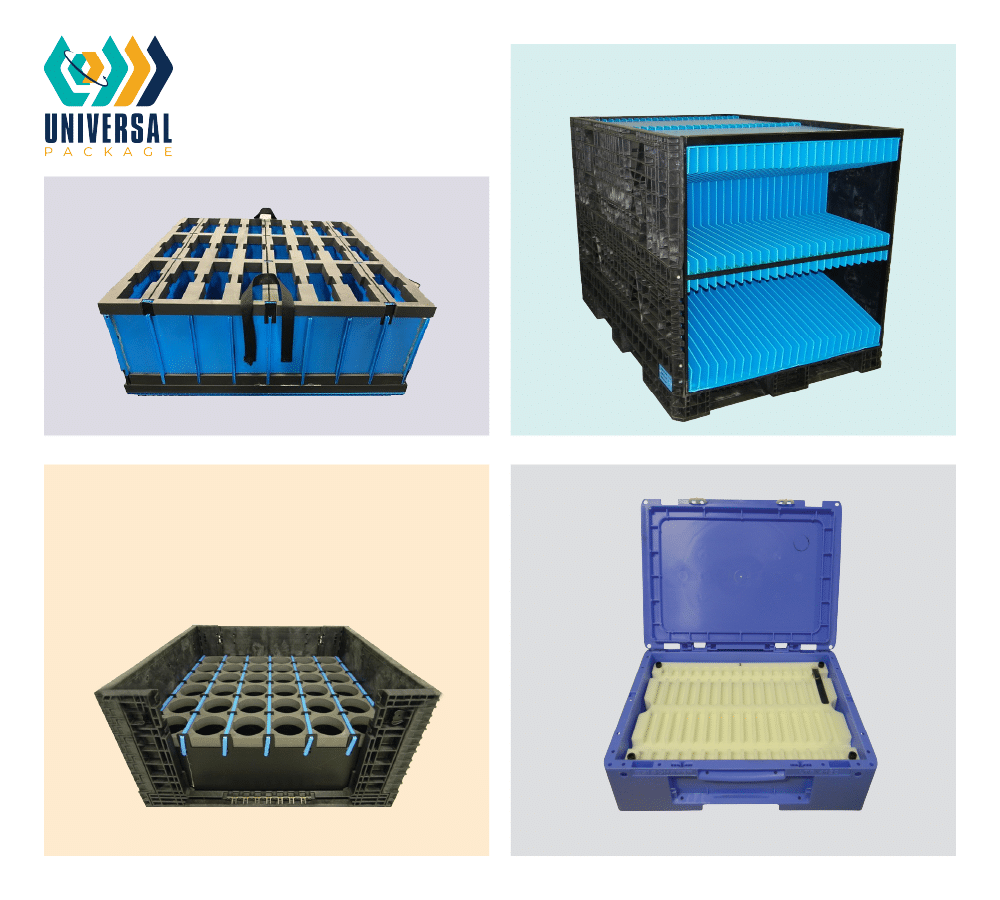
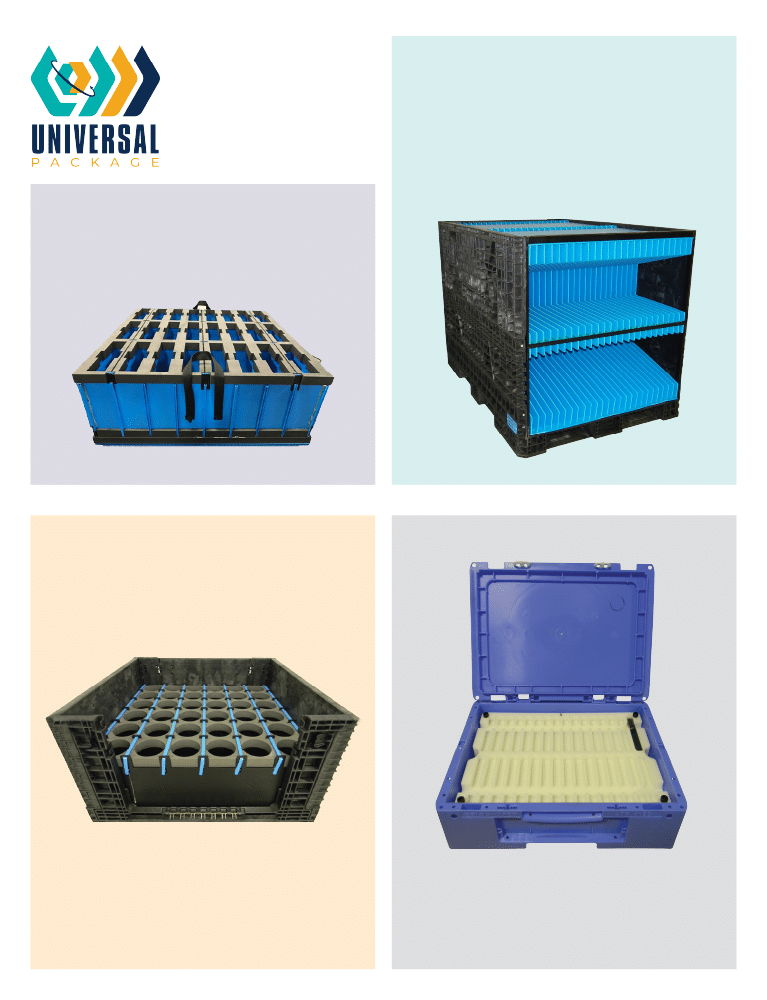
Selecting the appropriate material for load protection is essential for effective load safety. Each material offers unique benefits depending on the product and shipping conditions.
Foam
Foam comes in various types, including polyethylene (PE) and polyurethane (PU) foams, available in different densities ranging from soft and pliable to firm and resilient. Foam is unparalleled at absorbing shock and vibration. It works by compressing upon impact, effectively dissipating energy and offering superior cushioning and protection for fragile or sensitive components during transport and handling.
Its flexibility means foam can be easily cut, routed, or even molded to create precise cavities or “nests” that perfectly fit the unique shape of a product. This secures the item snugly, preventing any unwanted movement and protecting all its surfaces. Softer foams are particularly valuable for making gentle contact with highly finished or easily scratched surfaces without causing abrasion. Its ability to absorb energy and conform to shapes makes foam a go-to choice for items that require significant cushioning or precise, non-abrasive support.
Corrugated Plastic
Lightweight, durable, and reusable, corrugated plastic offers a balance of strength and cost efficiency. It withstands moisture, chemicals, and temperature fluctuations, making it suitable for automotive and consumer goods applications.
Corrugated plastic is primarily used for creating rigid dividers, layer pads, and custom-shaped inserts within totes, containers, or racks. This effectively prevents items from touching and provides essential structural support within the package or storage unit. Corrugated plastic’s smooth, non-abrasive surface is ideal for preventing scratches and scuffs on many finished goods, while its resistance to moisture and chemicals makes it a reliable choice for challenging industrial environments. We frequently integrate this versatile material to build custom internal structures for plastic totes, including complex kitting totes where precise organization and separation of multiple parts are vital for both safety and process efficiency. Its rigidity and resistance ensure it maintains its form and function over many cycles, providing consistent load safety.
Textile
Increasingly valuable in industrial packaging, particularly for protecting delicate finishes, is textile dunnage. This category includes protective elements fabricated from various durable fabrics, which are often sewn into custom bags, sleeves, pouches, or multi-pocket dividers.
Textile dunnage can be padded or non-padded depending on the required level of protection. Textiles are particularly effective for providing non-abrasive surface protection, making them ideal for highly sensitive, painted, or polished parts that could be easily scratched by harder materials. Sewn dividers or individual bags create flexible compartments that gently separate items, conforming slightly to their shape for a snug, protective fit.
Furthermore, multi-pocket textile inserts are excellent for keeping multiple smaller parts separate and organized within larger containers or steel racks, preventing them from jumbling together during handling. While not designed for heavy impacts like dense foam, padded textile dunnage can also offer a degree of lightweight cushioning. Its softness, flexibility, and non-abrasive nature make it perfect for protecting delicate finishes and providing flexible, lightweight separation.
Metal and Hybrid Materials
For heavy-duty applications, metal or hybrid designs that combine metal with foam or plastic inserts offer robust support. Such solutions are ideal for transporting heavy components and ensuring stability under rough handling conditions.
Solid Plastic Dunnage
For applications requiring even greater rigidity and load-bearing capacity than corrugated plastic, solid plastic dunnage is often the ideal choice. This refers to protective elements made from solid sheets or molded pieces of durable plastics like HDPE (High-Density Polyethylene) or PP (Polypropylene). Unlike corrugated plastic, solid plastic is dense and non-fluted. This density makes it incredibly strong and resistant to compression. Solid plastic dunnage is excellent for heavy-duty structural support, acting as robust dividers, base pads, or bracing for heavy or sharp components that might puncture or crush less durable materials. It offers superior impact resistance and can handle significant weight, making it crucial for safely stacking heavy loads or securing parts that exert high pressure. Its robustness and resistance to deformation contribute significantly to maintaining load integrity and preventing catastrophic failures in demanding industrial environments.
Importance of Customizable Dunnage Solutions
While we’ve discussed various types of dunnage materials, it’s crucial to understand that simply using any dunnage isn’t enough. Standard, off-the-shelf dunnage provides only basic protection and often falls short when dealing with the unique challenges presented by specific industrial parts. It might leave gaps, fail to provide adequate support, or use materials that aren’t suited for the product’s finish or fragility.
This is where customizable dunnage solutions become essential for ensuring optimal load safety. Unlike generic options, custom dunnage is designed precisely to match the specific needs of your application and products. Packaging materials and designs are chosen based on criteria critical to your operation, including:
- Fitting the shape of a product: Custom dunnage is engineered to create a perfect, secure fit for each unique item, preventing it from shifting, sliding, or colliding with other parts or the container walls. This tailored approach is fundamental to minimizing the risk of damage.
- Proper weight distribution: Custom designs ensure that weight is supported and distributed correctly within the packaging or rack, preventing crushing or deformation of products, especially when stacking.
- Fragility and scratch protection: The right materials (like specific foams or textiles) and design are chosen to protect sensitive surfaces and fragile components from abrasion, impacts, and other handling stresses.
- Performance and longevity: Custom solutions often utilize durable, industrial-grade materials that are designed for repeated use cycles, ensuring consistent, reliable protection trip after trip – a key aspect of predictable load safety.
- Ergonomics: Well-designed custom dunnage considers how users interact with the packaging, making loading, unloading, and assembly processes safer and more efficient, which indirectly contributes to reduced handling damage.
- Affordability/Customer return: While potentially having a higher upfront cost, custom reusable dunnage provides significant long-term cost savings by drastically reducing damage expenses, rework, and shipping claims. It also leads to higher customer satisfaction due to products arriving in pristine condition.
Ultimately, investing in custom dunnage isn’t just about adding protective material; it’s a strategic investment in engineering a comprehensive solution that safeguards your valuable goods throughout their journey and within your facility. By addressing the unique needs of your products with tailored materials and designs, custom dunnage ensures enhanced load safety, streamlined operations, and significant long-term cost savings.
Key Benefits of Dunnage for Load Safety
Dunnage enhances load safety through several key advantages:
- Impact and Vibration Protection: Absorbs shocks and minimizes damage from transit vibrations.
- Prevention of Load Shifting: Keeps products securely in place, reducing risks associated with moving loads.
- Cost-Effective: Reduces expenses related to product damage, rework, and replacement by extending the lifespan of packaging materials.
- Improved Organization: Ensures that products are neatly arranged inside containers, facilitating easier loading, unloading, and inventory management.
- Versatility: Customizable solutions serve a broad range of industries, providing tailored protection for diverse product types. This level of customization isn’t just about the dunnage piece itself; it’s about designing dunnage that integrates seamlessly into your larger packaging and logistics system.
Factors to Consider When Choosing Dunnage
When selecting load protection, businesses should evaluate several factors to ensure the solution meets their specific needs. Key considerations include:
- Product Characteristics: Assess the fragility, shape, and weight of items to determine necessary cushioning and support.
- Shipping Conditions: Consider environmental factors such as temperature fluctuations, humidity, and vibrations.
- Reusability: Decide between disposable or reusable solutions based on the frequency of shipments.
- Compliance: Ensure the materials meet industry-specific standards, especially for medical or military applications.
- Space Optimization: Choose designs that maximize container space and promote efficient loading.
- Sustainability Goals: Opt for eco-friendly materials that support long-term cost savings and environmental objectives.
Best Practices for Using Dunnage Effectively
To maximize the benefits of dunnage, follow these best practices:
- Ensure each product fits snugly within its designated compartment, leaving no room for unnecessary movement.
- Conduct routine inspections and maintenance of protective materials to detect wear and prevent performance issues.
- Train personnel on proper handling techniques and placement guidelines for consistent and effective use.
- Optimize container layouts to maximize space efficiency and reduce loading or unloading times.
- Regularly assess the performance of your dunnage system and adjust the design as needed to accommodate evolving shipment requirements.
Applications of Dunnage Across Key Industries
Dunnage is essential to various industries, each of which benefits from customized protective solutions.
Automotive Industry
Dunnage protects large, irregularly shaped parts such as dashboards and engine components. Custom foam inserts and corrugated plastic can absorb shocks and secure items during transit.
Electronics Industry
For delicate components like circuit boards and sensors, foam and textile-based solutions offer essential protection from vibration and static discharge while ensuring organized compartmentalization.
Pharmaceutical Industry
Protective solutions in pharmaceuticals secure temperature-sensitive products by incorporating foam or insulated materials that safeguard against thermal fluctuations and physical damage.
Military and Defense
Robust materials in military logistics often combine metal and custom foam inserts to protect high-value equipment under extreme conditions.
Trade Shows and Exhibitions
Custom protective solutions ensure that display items and booth components are safely transported and easily set up, reducing the risk of damage and saving valuable setup time.
Investing in Dunnage is Investing in Safety and Savings
In the demanding world of industrial logistics and manufacturing, the journey your products take – whether across the country or just across the factory floor – is fraught with potential hazards. As we’ve seen, even minor shifts, impacts, or abrasions can result in costly damage, delays, and dissatisfied customers. Protecting your valuable goods isn’t an afterthought; it’s a critical component of operational success, and dunnage is at the heart of ensuring that protection, guaranteeing load safety every step of the way.
Proper dunnage isn’t just padding; it’s an engineered solution designed to secure, separate, cushion, and support your products, preventing the movement and forces that lead to damage. While standard options exist, the unique characteristics of industrial parts – their shapes, weights, finishes, and fragility – demand a more precise approach. Custom-designed dunnage, utilizing materials like durable corrugated plastic, shock-absorbing foam, or non-abrasive textiles, integrated seamlessly into your totes, containers, or steel racks, provides the tailored fit and specific protection your goods require.
Ultimately, investing in the right dunnage is a strategic decision. It’s an investment in reducing scrap and rework costs, minimizing freight claims, improving efficiency, and consistently delivering quality products to your customers. It transforms a potential cost center (damaged goods) into a driver of reliability and profitability.
Don’t leave the safety of your valuable industrial goods to chance. If you’re experiencing damage, seeking to improve your operational efficiency, or simply want to ensure your products are protected with the best possible solution, Universal Package is here to help. As specialists in custom industrial packaging, including expert dunnage design and manufacturing, we have the experience and materials to create solutions perfectly tailored to your needs.


